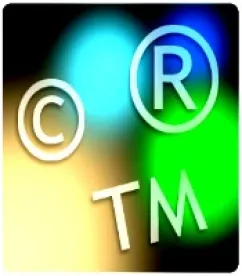Opposition and cancellation proceedings before the Trademark Trial and Appeal Board (TTAB) may take on additional significance after the U.S. Supreme Court’s recent decision in B&B Hardware v. Hargis Industries, No. 13-352, decided March 24, 2015. Reversing the United States Court of Appeals for the Eighth Circuit, the Supreme Court held that TTAB rulings have a preclusive effect in subsequent federal court proceedings if the trademark usages adjudicated by the TTAB are materially the same as those before the federal court, provided that all other elements of issue preclusion are present.
The doctrine of issue preclusion, also known as collateral estoppel, operates to prevent the re-litigation of issues that have already been decided in prior proceedings. Issue preclusion applies when (1) the issue is substantially identical in both proceedings; (2) the issue was actually litigated during the first case; and (3) it was the subject of a final judgment on the merits. If all three factors are present, TTAB rulings in opposition or cancellation proceedings can prevent parties from re-litigating central issues such as likelihood of confusion in trademark infringement suits. Brand owners that regularly engage in TTAB proceedings should consider the potential for issue preclusion in planning their strategy.
The B&B Hardware decision ended an 18-year trademark battle between the parties. Hargis sought to register its SEALTITE mark with the United States Patent and Trademark Office in 1996. B&B Hardware opposed the application to register SEALTITE before the TTAB and also sued Hargis for infringement in federal court, in both cases alleging that SEALTITE was confusingly similar to B&B Hardware’s own “SEALTIGHT” mark. While the federal court case was pending, the TTAB sided with B&B Hardware and denied registration to Hargis’ SEALTIGHT mark based on its finding that the parties’ respective marks were confusingly similar. Hargis did not appeal the TTAB decision.
B&B Hardware then argued in the still-pending district court proceedings that Hargis could not contest the issue of likelihood of confusion because it had already been decided before the TTAB. The federal district court found that decisions of the TTAB cannot have a preclusive effect because the TTAB is not technically a court but an administrative board. On appeal of the federal district court decision, the Eighth Circuit held that while decisions of agencies such as the TTAB could in theory have preclusive effect, the TTAB’s analysis of likelihood of confusion was sufficiently different from that employed by a federal court to prevent preclusion because, in effect, the issues considered would not be identical. The TTAB’s analysis focuses only on the parties’ usages of the marks as described in their trademark application(s) and/or registration(s), which may not encompass all of the parties’ actual usages of the marks, whereas federal courts consider all uses of the parties’ marks in the marketplace.
In reversing the Eighth Circuit, the Supreme Court held that both the TTAB and U.S. federal courts employ fundamentally similar factors and the same legal standard to analyze likelihood of confusion. In cases in which marketplace usage of the marks is substantially identical to the usages reflected in the parties’ trademark application(s) and registration(s), the TTAB’s consideration of likelihood of confusion would be materially similar to that of a district court. Under such circumstances, the Supreme Court reasoned that issue preclusion should apply, assuming the other required elements are present.1 The Court noted, however, that in many cases the TTAB’s analysis of usages of the parties’ marks would be less robust than that of a district court and therefore not entitled to preclusive effect.
In practice, the decision may cause a greater allocation of time, resources and attention to TTAB proceedings, given their potential effect on future litigation. Hargis argued that issue preclusion should never apply to TTAB decisions because, in its view, “the stakes for registration are so much lower than for infringement.” Alito, J., Slip Op. at 21. Justice Samuel Alito, writing for the majority, disagreed. “When registration is opposed, there is good reason to think that both sides will take the matter seriously” because of the important benefits of trademark registration and the potential for judicial review on appeal. Id. at 21-22. Now that a TTAB ruling may also have preclusive effect in court, trademark owners should carefully consider Justice Alito’s advice and conduct TTAB proceedings strategically and carefully. In addition, the parameters of trademark applications may take on greater importance, as the scope of use reflected in an application or registration could determine whether the TTAB’s analysis of likelihood of confusion would be similar enough to a court analysis to have preclusive effect. Finally, the potential preclusive effect of a TTAB decision becomes an important factor when considering settlement of a registration dispute.
1 Although the B&B Hardware decision is limited to TTAB rulings, similar reasoning may lead to issue preclusion based on decisions of the Patent Trial and Appeal Board in trials under the America Invents Act.





 />i
/>i
